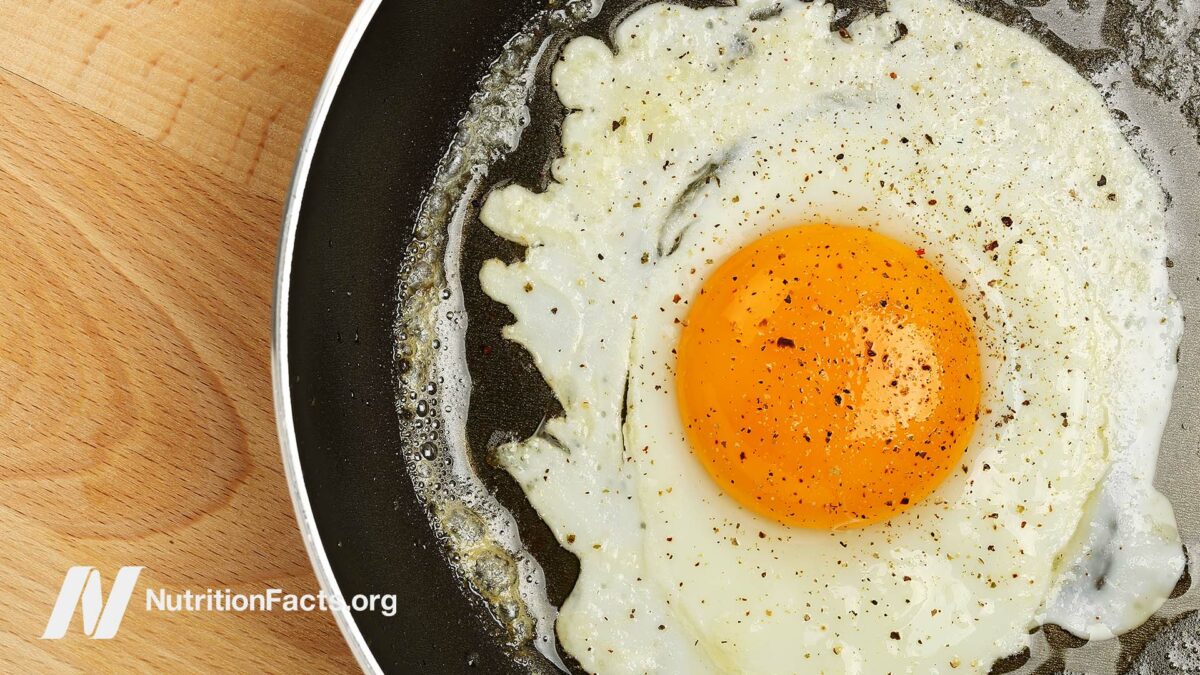
Eggs
Although eggs have been marketed for decades as a healthy source of protein, consumption has been linked to many significant harms.
Eggs and Salmonella Bacteria
Salmonella bacteria are a leading cause of food poisoning-related hospitalizations and the top cause of food poisoning-related death. Within 12 to 72 hours after infection, the most common symptoms may appear—fever, diarrhea, and severe abdominal cramps. The illness typically lasts four to seven days, but among children and the elderly, the disease can be severe enough to require hospitalization—or funeral arrangements.
Many associate Salmonella with eggs—for good reason. In 2010, for instance, more than half a billion eggs were recalled due to Salmonella outbreaks. Salmonella in eggs may survive scrambled, over-easy, and sunny-side-up cooking methods, as well as in cooked omelets and french toast, and perhaps even in eggs boiled up to eight minutes.
High in Cholesterol, Higher Health Risks
Salmonella concerns aside, a single egg has 207 milligrams of cholesterol on average and some experts suggest that eating even one egg a day may exceed the safe upper limit for cholesterol intake in terms of cardiovascular disease risk. Dietary cholesterol may also contribute to nonalcoholic fatty liver disease, and cholesterol consumption was found to be a strong predictor of cirrhosis and liver cancer. After a meal that includes eggs, triglycerides and blood cholesterol shoot up. Those consuming the amount of cholesterol found in two Egg McMuffins or more each day appeared to double their risk of hospitalization or death. It’s no wonder the Dietary Guidelines of Americans mirror the National Academies of Science recommendation to consume as little cholesterol as possible.
Increasing Risks of Prostate Cancer
Compared with men who rarely eat eggs, men eating even less than one egg a day appear to have twice the risk of prostate cancer progression. And men who consume two and a half or more eggs per week—basically an egg every three days—may have an 81 percent increased risk of dying from prostate cancer.
Other Cancers
Egg consumption has also been associated with cancers of the bladder and breast.
The Choline in Eggs
How could eating less than an egg a day have such potential impact on cancer risk? The answer may be choline, a compound found concentrated in eggs. The choline in eggs, like the carnitine in red meat, is converted into a toxin called trimethylamine by bacteria existing in meat-eaters’ guts. Trimethylamine, once oxidized in the liver, appears to increase the risk of heart attack, stroke, and premature death.
Eggs and Diabetes
Eating just a single egg a week appeared to increase the odds of diabetes by 76 percent. Two eggs a week appeared to double the odds, and just a single egg a day tripled the odds. Once we then have diabetes, eggs may hasten our death. Eating one egg or more a day appears to shorten anyone’s lifespan, but it may double the all-cause mortality for those with diabetes.
For substantiation of any statements of fact from the peer-reviewed medical literature, please see the associated videos below.
Popular Videos for Eggs

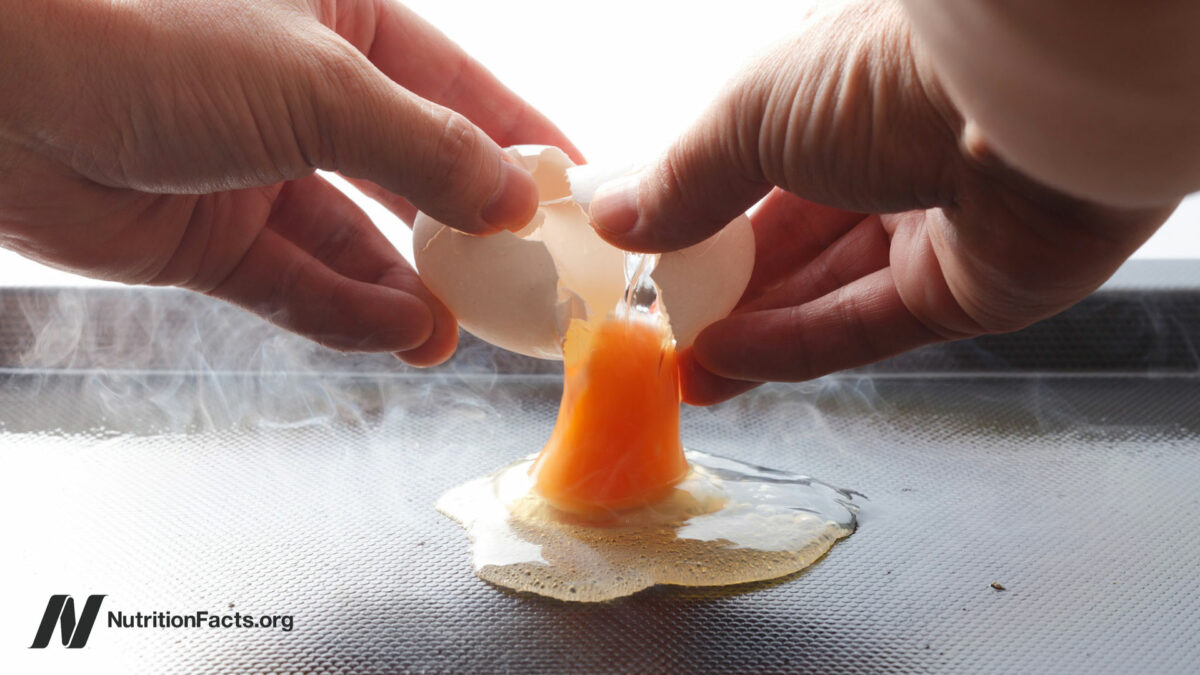
Dietary Cholesterol and Inflammation from Abdominal Obesity
The optimal intake of dietary cholesterol may be zero.
Dietary Guidelines: “Eat as Little Dietary Cholesterol as Possible”
Why do the official federal Dietary Guidelines for Americans recommend limiting the intake of dietary...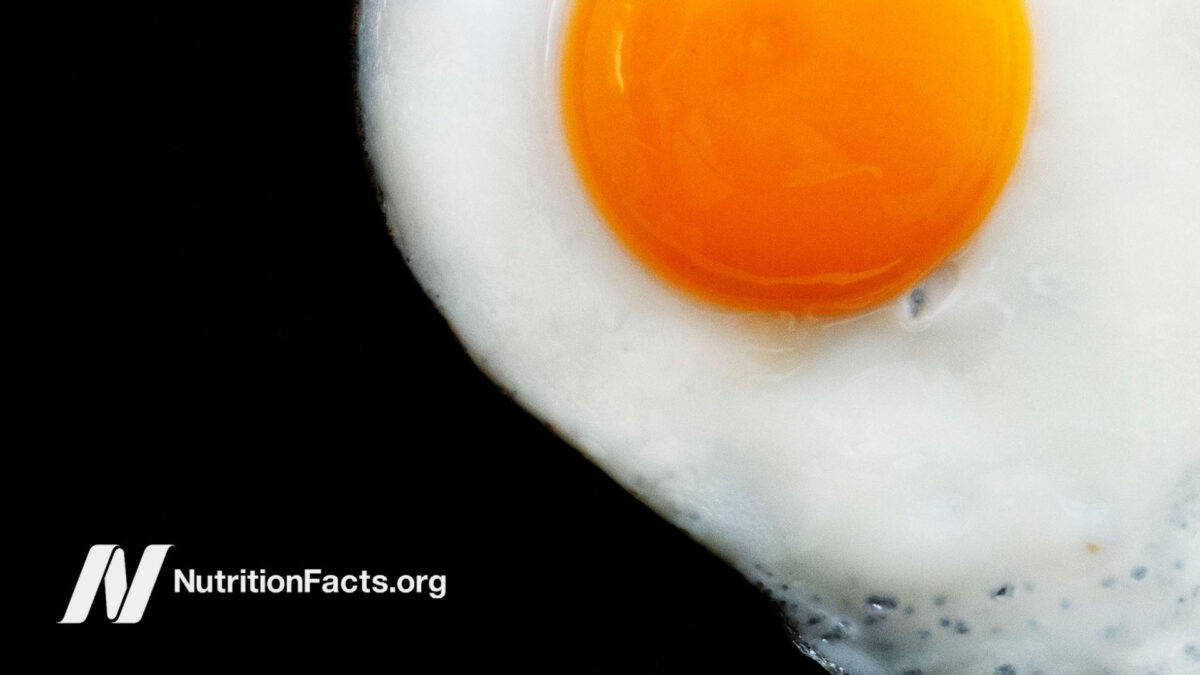
Does Dietary Cholesterol (Eggs) Raise Blood Cholesterol?
Even nine out of ten studies funded by the egg industry show that eggs raise...
Eggs and Breast Cancer
How few eggs should we eat to reduce the risk of prostate, ovarian, colon, and...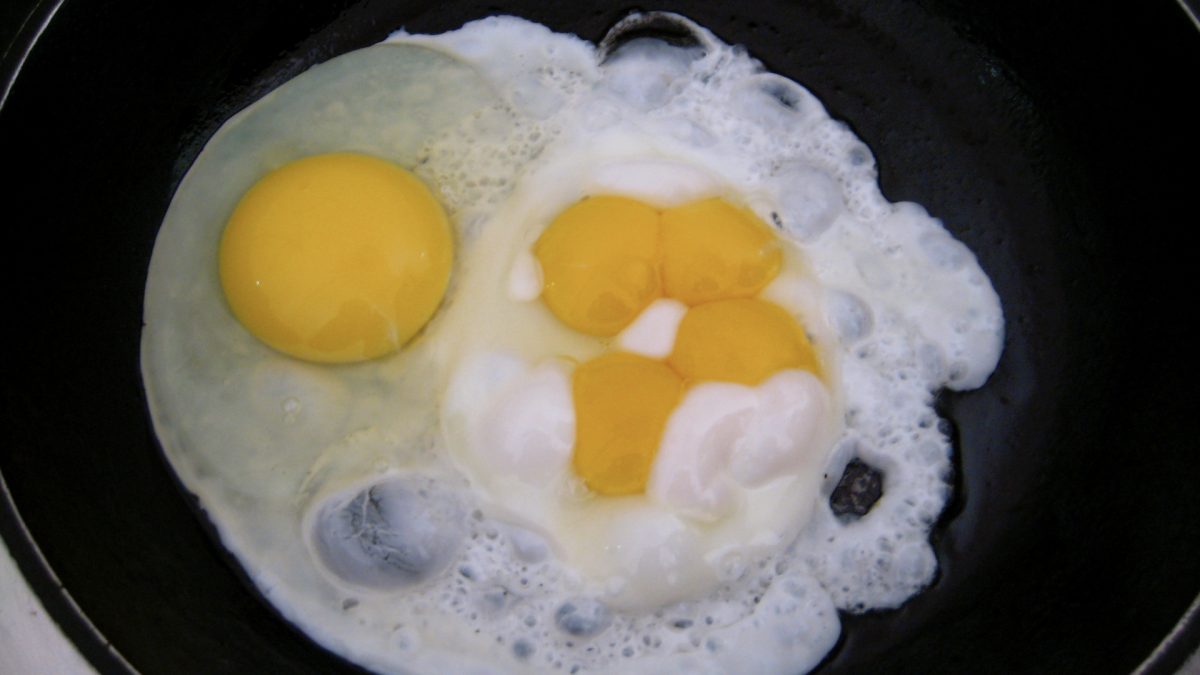
How Our Gut Bacteria Can Use Eggs to Accelerate Cancer
The reason egg consumption is associated with elevated cancer risk may be the TMAO, considered...
Egg Industry Response to Choline and TMAO
How the egg industry funded a study designed to cover up the toxic trimethylamine oxide...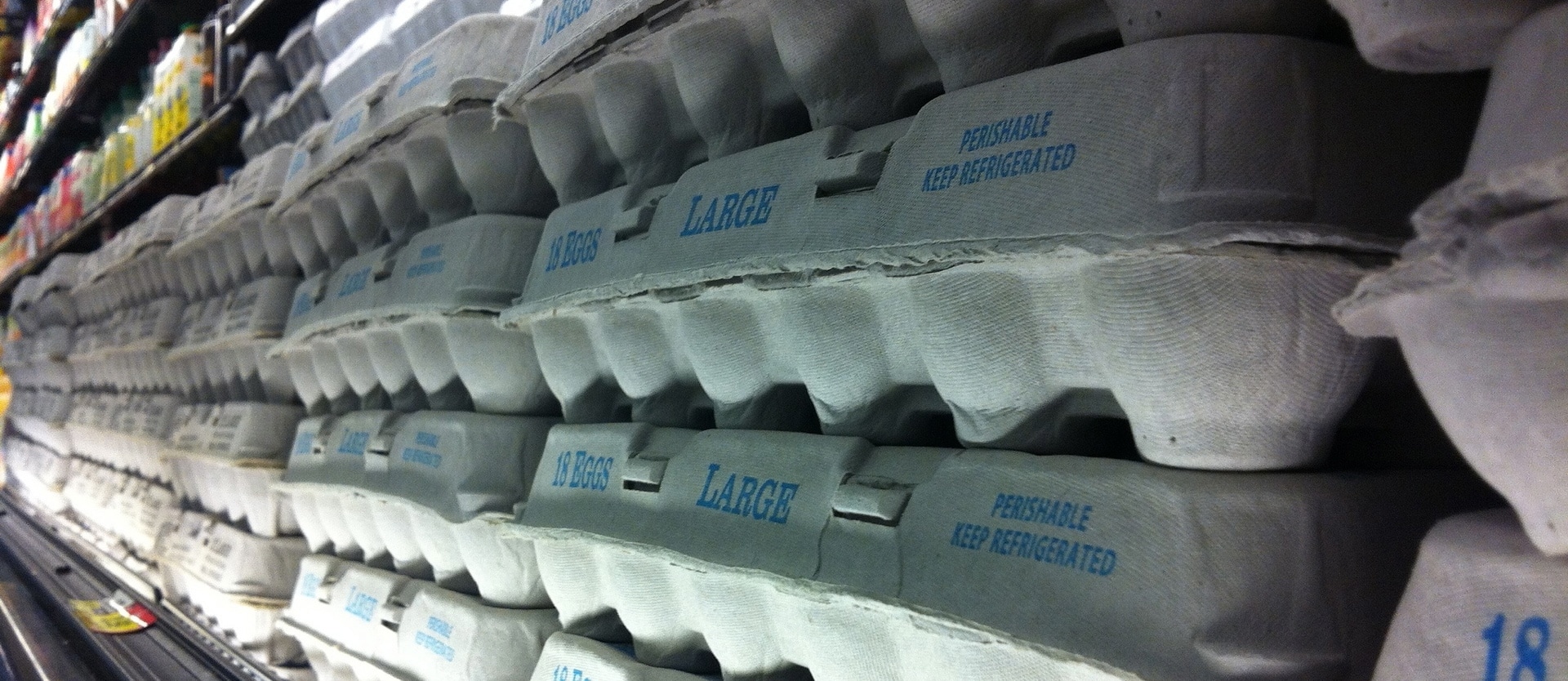
Who Says Eggs Aren’t Healthy or Safe?
Freedom of Information Act documents reveal that the U.S. Department of Agriculture warned the egg...
Does Cholesterol Size Matter?
How do American Egg Board arguments hold up to scientific scrutiny, such as the concept...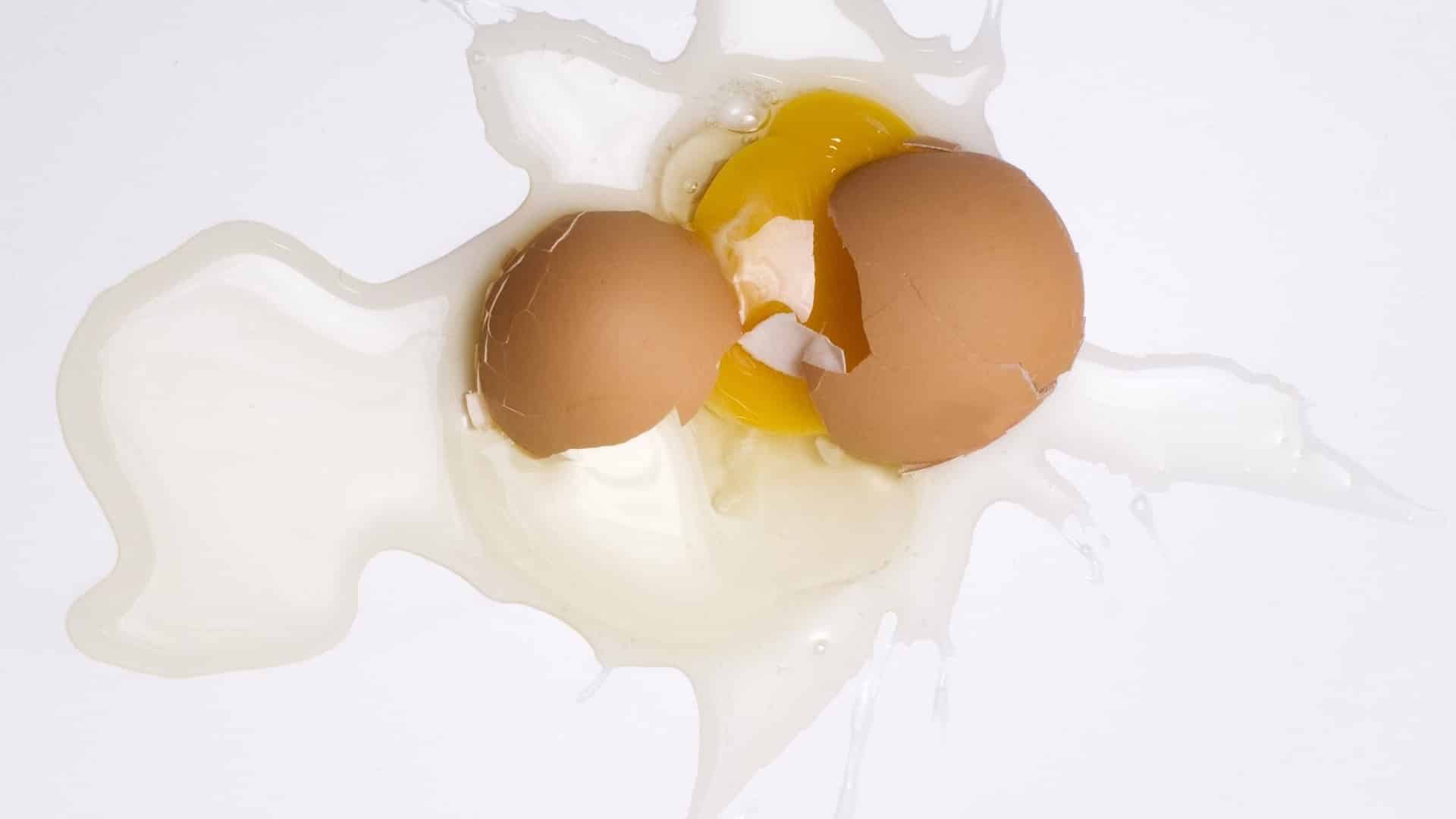
How the Egg Board Designs Misleading Studies
The cholesterol in eggs not only worsens the effects of saturated fat, but has a...
When Low-Risk Means High-Risk
Dr. Rose’s sick-population concept may explain why many nutrition studies underestimate the role of diet...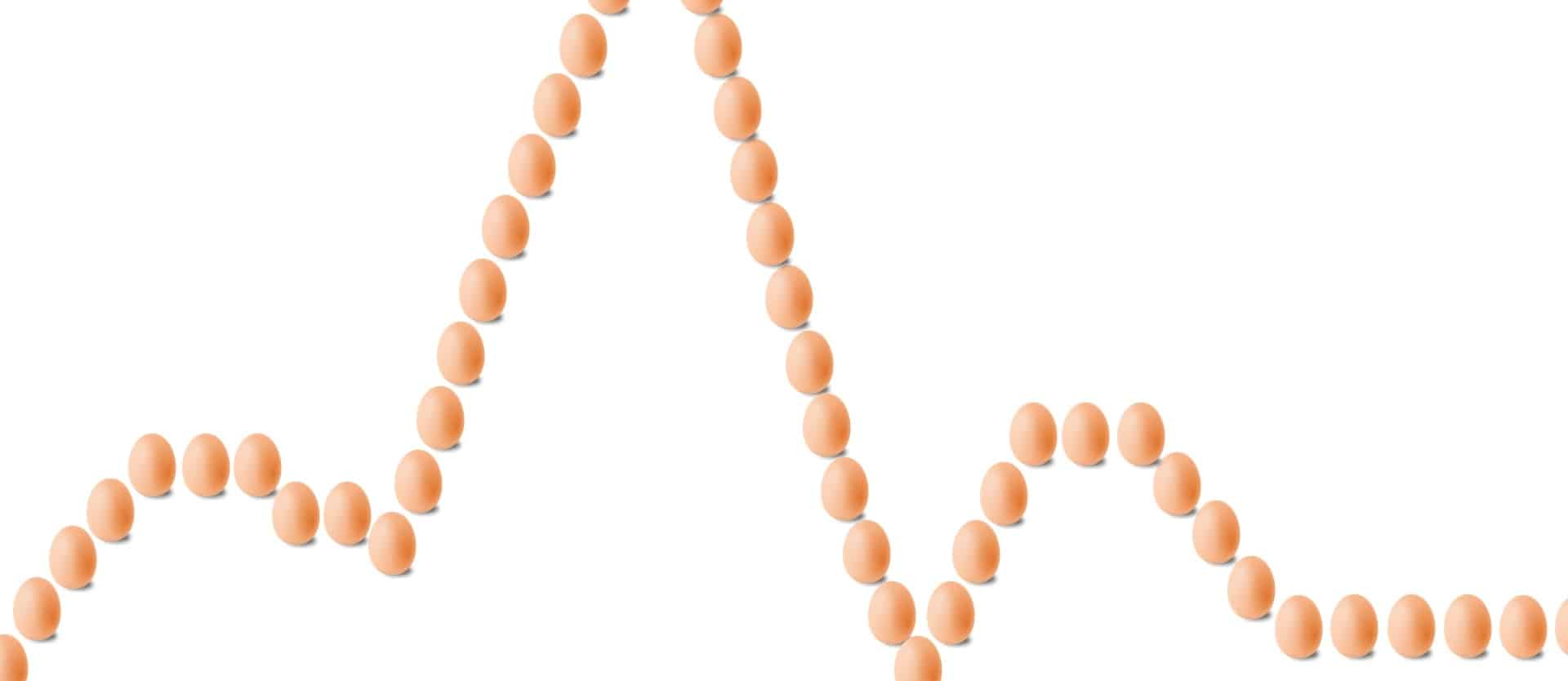
Eggs and Arterial Function
Even studies funded by the American Egg Board show our arteries benefit from not eating...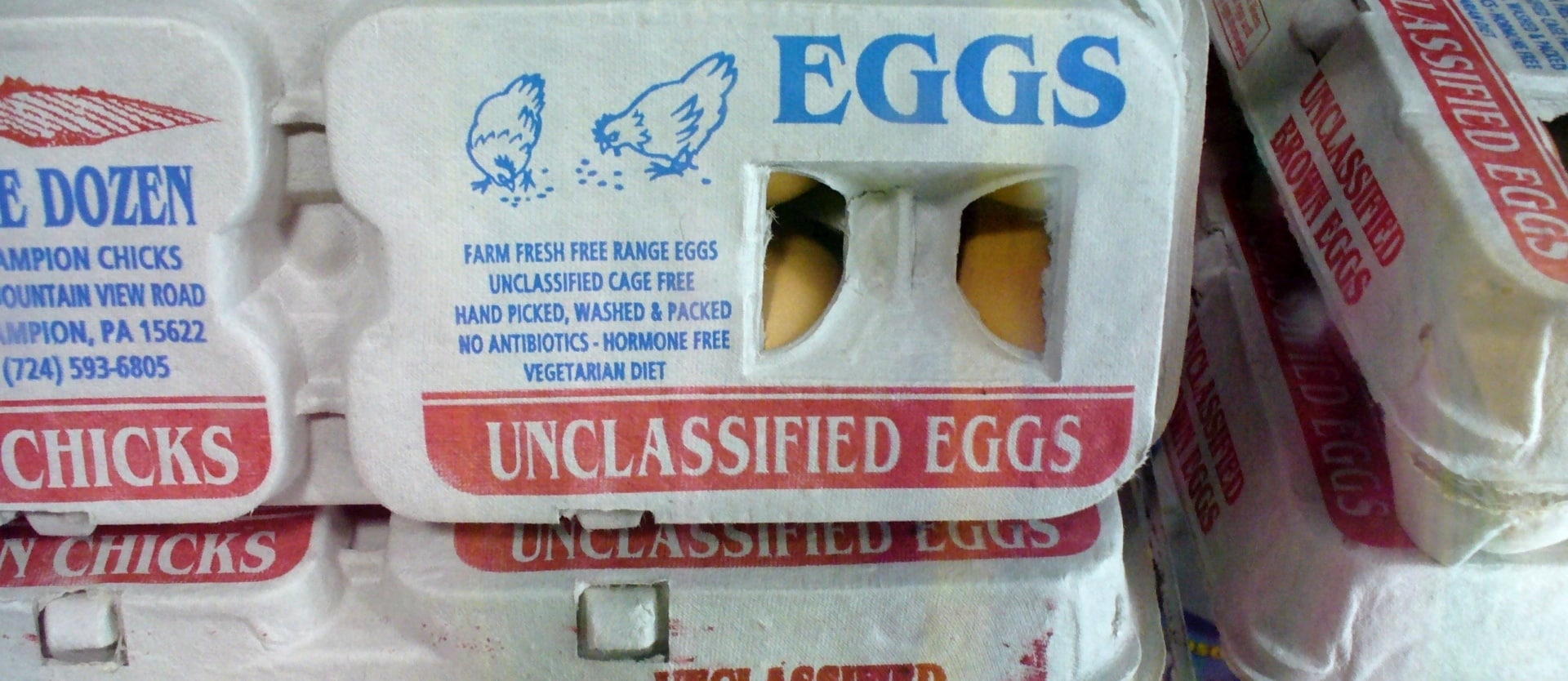
Debunking Egg Industry Myths
The latest meta-analysis of studies on egg consumption and heart disease risk found that even...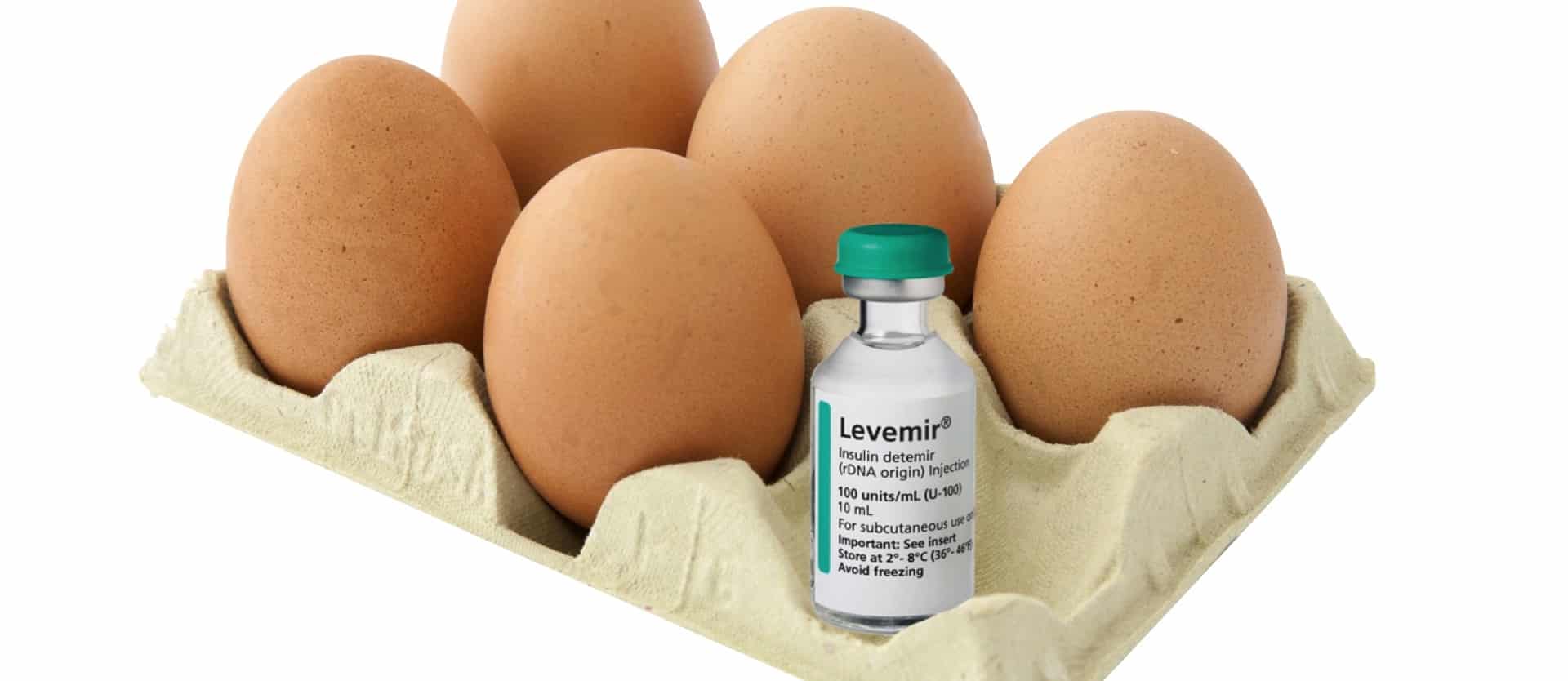
Eggs and Diabetes
Even just a single egg a week may increase the risk of diabetes—the leading cause...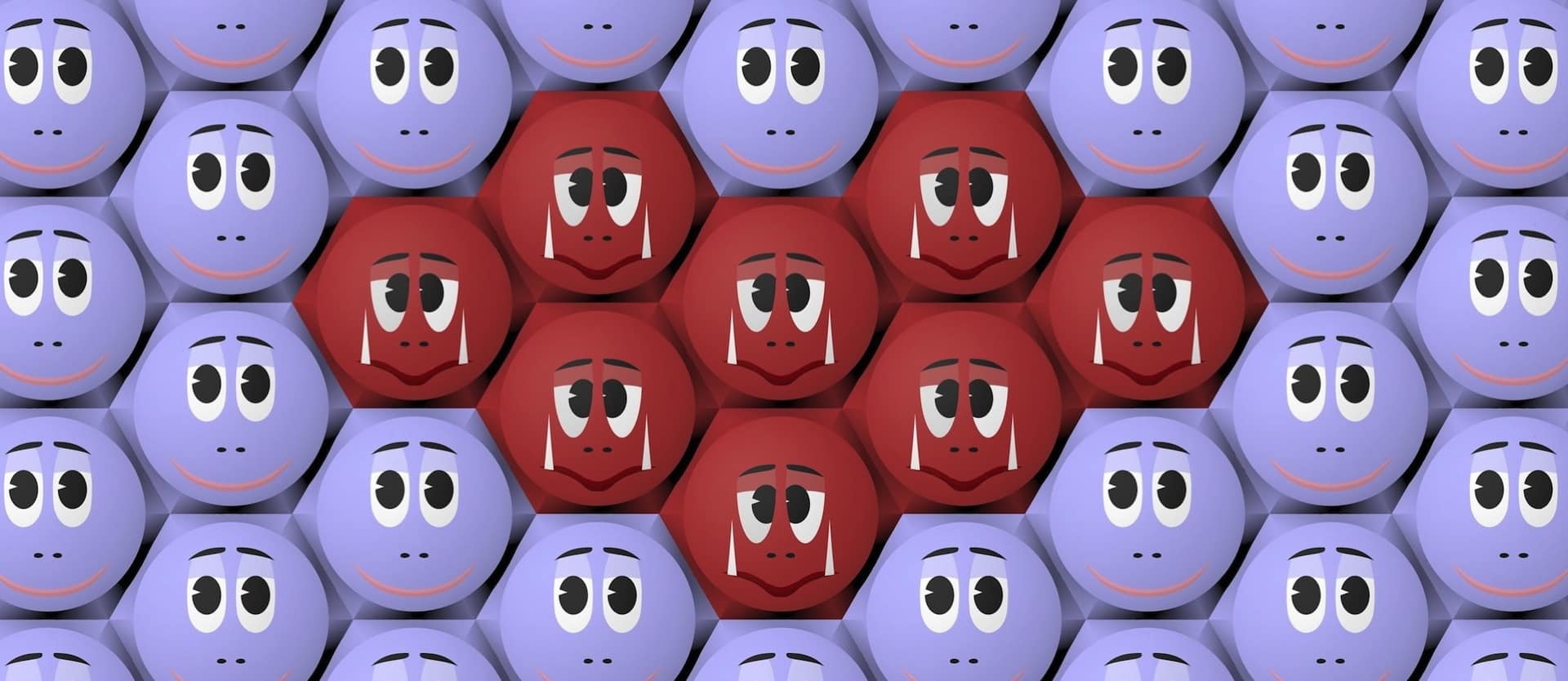
Eggs, Choline, and Cancer
Choline may be the reason egg consumption is associated with prostate cancer progression and death.
Eggs and Cholesterol: Patently False and Misleading Claims
Egg industry claims about egg safety found to be patently false, misleading, and deceptive by...All Videos for Eggs
-

Is One Egg a Day Too Much?
Meta-analyses of studies involving more than ten million participants confirm that greater egg consumption confers a higher risk of premature death from all causes.
-

Why Does Hair Turn Gray?
As with vitiligo in the skin, buildup of hydrogen peroxide kills the pigment cells in hair follicles.
-

The Diet Shown to Slow Age-Related Hearing Loss
An interventional trial found that dietary changes may slow or even reverse the loss of hearing.
-

The Best Diet for COVID and Long-COVID
Healthy plant-based diets appear to help reduce the risk of severe COVID-19 and getting infected in the first place, even independent of comorbidities.
-

Why Vegans Should Eat More Plant-Based
One cannot assume that simply avoiding animal foods will necessarily produce a healthy diet.
-

Are Beyond Meat Plant-Based Meat Alternatives Healthy?
The SWAP-MEAT study puts Beyond Meat products to the test.
-

Plant-Based Diet for Minimal Change Disease of the Kidney
What are the three reasons plant protein is preferable to animal protein for kidney protection?
-

Dietary Cholesterol and Inflammation from Abdominal Obesity
The optimal intake of dietary cholesterol may be zero.
-

Plant-Based Pregnancy Outcomes and Breast Milk
The composition of breast milk is compared between vegetarian and nonvegetarian women.
-

Plant-Based Diet for Treating and Reversing Stage 3 Kidney Disease
I share a touching story of the power of plant-based eating for chronic kidney failure.
-

Dietary Guidelines: “Eat as Little Dietary Cholesterol as Possible”
Why do the official federal Dietary Guidelines for Americans recommend limiting the intake of dietary cholesterol (found mostly in eggs) as much as possible?
-

The Impacts of Plant-Based Diets on Breast Cancer and Prostate Cancer
Why do people who eat more plants get less breast and prostate cancer?
-

The Harms Associated with Eating More Southern-Style Food
Diet appears to mediate the majority of the racial health gap.
-

Answering Your Questions About Cholesterol and Diabetes
I answer some common questions I’ve been asked about cholesterol and diabetes, such as “What is the ideal LDL?” “What’s going on when someone eats healthfully but their glucose is still out of control?”
-

Does Dietary Cholesterol (Eggs) Raise Blood Cholesterol?
Even nine out of ten studies funded by the egg industry show that eggs raise cholesterol.
-

Cholesterol and Heart Disease: Why Has There Been So Much Controversy?
Is the role of cholesterol in heart disease settled beyond a reasonable doubt?
-

The Purported Benefits of Vitamin K2: Should You Take Supplements?
Our body can make vitamin K2 from the K1 in green leafy vegetables.
-

Do Alkaline Diets Help Athletic Performance?
Can reducing acid-forming foods and boosting alkaline-forming foods replicate the performance-enhancing effects of sodium bicarbonate without the adverse effects?
-

Antibiotic-Resistant E. coli and UTIs in Vegetarians vs. Meat-Eaters
Tainted chicken may result in more than a million urinary tract infections in American women every year.
-

Lower Protein Diet Proven to Help Kidney Disease
How might we cut the risk of dialysis and death in half?
-

Foods That Cause and Help Halitosis (Bad Breath)
Most bad breath is due to the decay of sulfur-containing proteins.
-

Antibiotic Resistance Genes in the Guts of Vegetarians vs. Meat-Eaters
Those eating plant-based have a reduced load of antibiotic resistance genes in their gut.
-

The Best Diet for Treating Atrial Fibrillation
What foods should we eat and avoid to reduce our risk of Afib?
-

How to Cultivate a Healthy Gut Microbiome with Food
Our gut flora is determined by what we eat, for good or for ill.
-

How Big Meat Manipulated the Science
Big Meat downplays the magnitude of meat mortality.
-

Animal Protein vs. Plant-Based Protein
I discuss a public health case for modernizing the definition of protein quality.
-

Natural Dietary Treatments for Enlarged Prostate BPH
Cranberries and pumpkin seeds are put to the test for benign prostatic hypertrophy.
-

Saturated Fat Causes Artery and Lung Inflammation
What happens within hours of eating a high-fat meal?
-

Why Don’t People Eat Healthier?
The so-called optimism bias may get in the way of a healthy lifestyle.
-

Which Foods Are Anti-Inflammatory?
Foods that reduce inflammation. What does an anti-inflammatory diet look like?
-

Foods That Cause Inflammation
Inflammatory markers can double within six hours of eating a pro-inflammatory meal. Which foods are the worst?
-

Plant-Based Eating Score Put to the Test
How can you get a perfect diet score?
-

Can Cholesterol Get Too Low?
Why might healthy lifestyle choices wipe out 90 percent of our risk for having a heart attack, whereas drugs may only reduce risk by 20 to 30 percent?
-

Can Vegan Fecal Transplants Lower TMAO Levels?
If the microbiome of those eating plant-based diets protects against the toxic effects of TMAO, what about swapping gut flora?
-

Fasting for Post-Traumatic Brain Injury Headache
What effect do fasting and a plant-based diet have on TBI and migraines?
-

Fasting for Irritable Bowel Syndrome
More than half of IBS sufferers appear to have a form of atypical food allergy.
-

Foods Designed to Hijack Our Appetites
I debunk the myth of protein as the most satiating macronutrient.
-

Are Emulsifiers Like Carboxymethylcellulose and Polysorbate 80 Safe?
Emulsifiers are the most widely used food additive. What are they doing to our gut microbiome?
-

How to Boost Brain BDNF Levels for Depression Treatment
Fasting and exercise can raise BDNF levels in our brain, but this can also be achieved by eating and avoiding certain foods.
-

Diet for Hypothyroidism: A Natural Treatment for Hashimoto’s Disease
What were the results of a randomized, double-blind, placebo-controlled trial of a half teaspoon of powdered black cumin a day in Hashimoto’s (autoimmune thyroiditis) patients?
